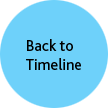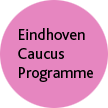Eindhoven Caucus November 9 NOV - 6 DEC 07
From 9 November until 6 December 2007 we organised the Eindhoven Caucus at the Van Abbemuseum. Here at the website we want to give an opportunity to see pictures, videos of lectures and presentation and other activities that took place during this four week period. In the future we will post more ideas, conclusions and follow-ups.The Eindhoven Caucus started from the principle that art proceeds from a discursive and critical culture. It seeked, in the context of art educational practices, to stimulate and transform. Thinkers and artists from all over the world came to Eindhoven to inspire the future, and acted as interlocutors for a group of local people and international students. Contributors included a broad range of critical theorists such as Rosi Braidotti, Homi K. Bhabha, Galit Eilat, Boris Groys, Chantal Mouffe, Nikos Papastergiadis, Paul Scheffer, Shepherd Steiner, Gayatri Chakravorty Spivak, Gerald Raunig and inspiring artists writers and cultural producers such as Yael Bartana, Abdelkader Benali, Igor Dobričić, Tone Olaf Neilsen, Sarah Pierce, Bik Van der Pol, Renee Ridgway, Artur Žmijewski, Phil Collins, Agung Kurniawan and many others.
Be[com]ing Dutch
Be[com]ing Dutch aims to open up an exploratory debate which puts our ideas of national identity at risk and examines and challenges the processes of inclusion and exclusion today. As questions of cultural identity and normative 'national' values become ever more of an issue in political and cultural debate, the concept behind Be[com]ing Dutch is to move the agenda on from notions of toleration and difference towards building a shared but agonistic democracy on the cultural level through the use of one of the few remaining public sphere institutions left to us - the museum. The Eindhoven Caucus attempted to look at the meaning of and context for a global visual culture right here (Eindhoven) and right now (2006-8). The four week intensive meeting offered a programme comprising of a lecture series, publications, screenings, performances, collective production, radio programmes, workshops and other activities.Central paradoxes of the CAUCUS included:
- The revival of nationalism versus the reality of globalisation and migration. How can art imagine a way out of this dichotomy?
- The re-emergence of religion as the dominant cultural identifier versus the secular globalisation of capital.
- How can art imagine identity differently today?
- The autonomy of art versus its use (critically, economically and socially)
- How can a museum effect change in a provincial city (Eindhoven).
- Can art change politics, does politics determine art?
![Be[com]ing Dutch logo](../img/logo.gif)
![Be[com]ing Dutch](../img/top1.gif)

